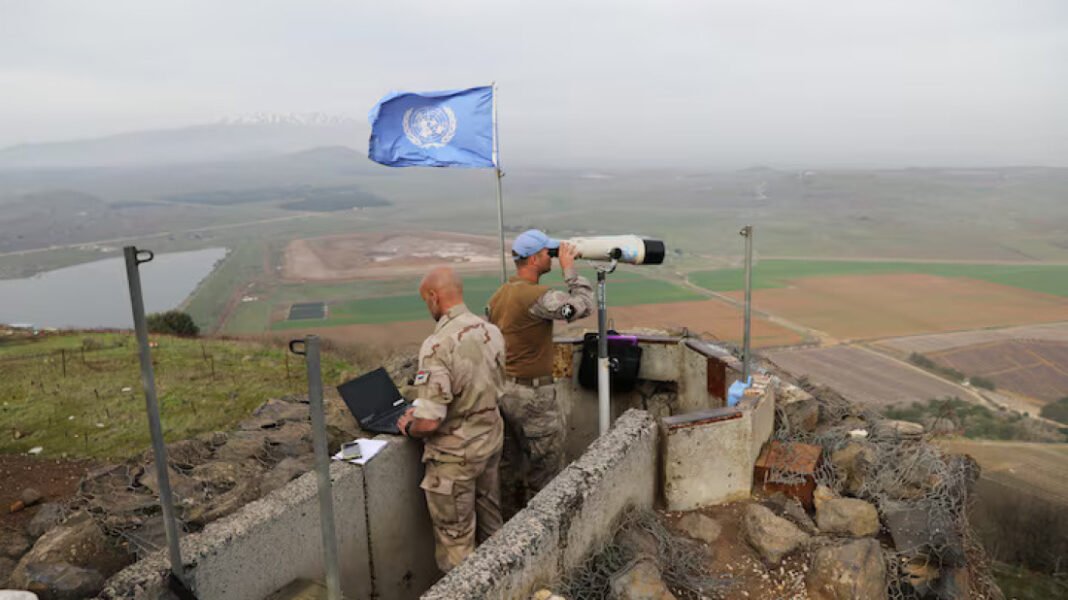Background of the UN Observer Force in Golan
The United Nations Disengagement Observer Force (UNDOF) was established in 1974 as a response to the need for maintaining peace and stability in the Golan Heights region following the 1973 Yom Kippur War. The conflict between Israel and Syria had heightened tensions and risks in the area, necessitating an international presence to monitor the ceasefire between the two nations. The UN Security Council authorized the deployment of UNDOF to oversee the disengagement of Israeli and Syrian military forces, ensuring compliance with the terms set forth in the disengagement agreement.
One of the primary objectives of UNDOF is to maintain a ceasefire between Israel and Syria. The force plays a crucial role in preventing hostilities and fostering a climate of peace in the region. To achieve this goal, UNDOF monitors the demilitarized zone that was established as part of the ceasefire agreement. This zone acts as a buffer, preventing direct military confrontation between the two countries. The operational mandate also includes the supervision of the area of limitation, which restricts the military presence and activities of both sides, thereby contributing to regional stability.
The geopolitical significance of the Golan Heights cannot be understated. This strategically important region has been a point of contention between Israel and Syria for decades. Its elevation provides a vantage point for military operations and surveillance, making it crucial for national security. The establishment of the UNDOF has attempted to mediate these tensions by providing a neutral international presence. Over the years, the mission has adapted to evolving security dynamics, responding to various challenges including cross-border violence and local hostilities. The ongoing commitment of forces under UNDOF continues to symbolize the international community’s efforts to secure a peaceful resolution to the Israeli-Syrian conflict.
Recent Developments: Resolution 2766 (2024)
On December 14, 2023, the United Nations Security Council unanimously adopted Resolution 2766 (2024), which extends the mandate of the United Nations Disengagement Observer Force (UNDOF) in the Golan Heights for an additional six months, until June 30, 2025. This renewal comes at a time of heightened tensions in the region, particularly following a shift in leadership in Syria and increased Israeli activity within the demilitarized zone (DMZ). The resolution aims to provide continued oversight and maintain peace in an area where military confrontations could escalate.
The significance of this resolution lies not only in its immediate implications for peacekeeping operations but also in the broader context of international relations. The collaborative effort in drafting this resolution, particularly between the Russian Federation and the United States, underscores a notable moment of diplomatic cooperation amidst rising regional tensions. Both nations recognized the necessity to stabilize the area and prevent further deterioration of security dynamics. Their joint endeavors highlight a potential common interest in fostering peace, despite their otherwise divergent geopolitical agendas.
Moreover, the extended mandate of UNDOF serves to reaffirm the international community’s commitment to safeguarding the ceasefire agreement between Israel and Syria, which has been in place since 1974. Reports indicating Israeli incursions into the DMZ have raised concerns regarding potential violations of this ceasefire, positioning UNDOF’s presence as crucial. The resolution also calls for a thorough monitoring process to ensure compliance with the existing agreements, thereby reinforcing the need for accountability among all parties involved.
In summary, Resolution 2766 (2024) represents a critical measure in addressing ongoing tensions in the Golan region. Its adoption demonstrates the Security Council’s commitment to a peaceful resolution, ensuring that UN peacekeeping efforts continue to operate effectively in maintaining stability. The next six months will be instrumental in gauging the effectiveness of these diplomatic efforts amidst the volatile geopolitical landscape.
Legal and Security Implications
The Israeli military presence in the area of separation between Israel and Syria is a contentious issue that has significant legal implications. This presence is often viewed as a violation of the 1974 disengagement agreement, which was established to create a buffer zone aimed at preventing hostilities between the two nations. The agreement, supported by various United Nations Security Council resolutions, mandates the withdrawal of military forces from the area to facilitate peace. However, reports of Israel’s military operations within this zone raise questions about compliance with international law and the efficacy of these agreements.
Furthermore, the ongoing Israeli military action undermines the legitimacy of UN peacekeeping operations in the region, which were instituted to monitor ceasefire agreements and ensure stability. The violation of the disengagement agreement not only exacerbates tensions between Israel and Syria but also poses challenges to the broader security landscape in the Middle East. As regional dynamics shift, the potential for escalated conflict becomes increasingly pronounced, driven by the military presence and the failure to adhere to established agreements.
Moreover, neighboring countries are affected by this instability. The presence of Israeli forces could provoke reactions from states like Lebanon and Iran, who have vested interests in the Syrian conflict and may view such actions as hostile. This could lead to a complex web of alliances and hostilities, stressing the diplomatic mechanisms in place to promote peace. The prospect of a renewed military conflict also complicates humanitarian efforts and limits the ability of international actors to address the ongoing humanitarian crises resulting from protracted conflicts.
Thus, the implications of the Israeli military presence extend beyond legal considerations, affecting regional security and international relations. Understanding these dynamics is crucial for mediating peace and restoring stability in an increasingly volatile region.
Future Prospects for UNDOF and the Region
The United Nations Disengagement Observer Force (UNDOF) has been stationed in the Golan Heights since 1974 to maintain peace and monitor ceasefire agreements following the Arab-Israeli conflict. However, the evolving geopolitical landscape presents substantial challenges that may hinder its ability to fulfill its primary mandate. As tensions in the region continue to escalate, the effectiveness and relevance of UNDOF’s operations come under scrutiny. The increasing incidences of skirmishes along the Israeli-Syrian border, along with the complexities arising from domestic conflicts in Syria, challenge the observer force’s capacity to operate effectively and safely.
Furthermore, the political dynamics within the region are steadily shifting. The Syrian civil war, foreign military interventions, and the regional ambitions of various state and non-state actors complicate the already fragile situation. As international involvement fluctuates, it is crucial to evaluate how these changes might affect the UN’s peacekeeping efforts. Enhanced diplomatic engagement plays a vital role in establishing a stable resolution for the Golan Heights. Any sustainable peace framework would necessitate comprehensive discussions involving not only the primary stakeholders—Israel and Syria—but also regional powers and international entities capable of influencing the peace process.
A stable resolution of the Golan Heights conflict would ideally include recognized borders, security guarantees, and a commitment to preventing further hostilities. Confidence-building measures and economic cooperation could also contribute to long-term peace. In this context, the United Nations, alongside the international community, must work diligently to facilitate dialogue and promote collaborative solutions. The future of UNDOF will depend heavily on these evolving diplomatic efforts and the collective will of nations seeking peace and security in the region, positioning the observer force as not merely a temporary solution, but an integral component in the quest for stability.

 from Africa, Asia and United Nations here for your comfort in different languages, but you can click on our translator in different languages on our Website.
from Africa, Asia and United Nations here for your comfort in different languages, but you can click on our translator in different languages on our Website.
